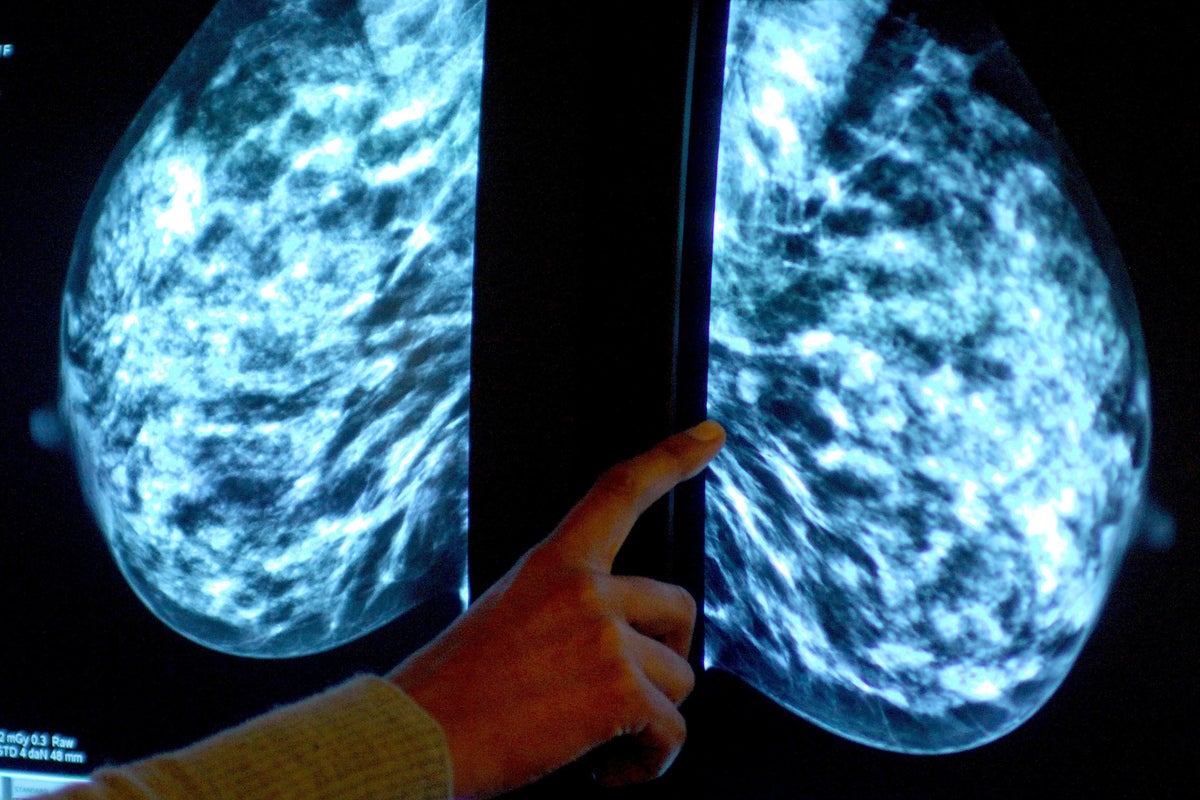
More must be done to get black, Asian and ethnic minority people to participate in breast cancer trials, experts have said, as they warned that people from these backgrounds have been under-represented in previous studies.
Medics said that they want research into the disease to be “relevant to people we see in the clinic”.
Experts said that there is a “broad misperception” that black women “don’t suffer as much from breast cancer” which can result in the perception that “cancer is a white person’s disease”.
If I hadn’t gone on the trial at The Christie, I wouldn’t be here today— Jasmin David
This is despite the fact that previous studies have found that black women are more likely to die from breast cancer compared to their white peers.
They are also more likely to develop more aggressive cancer and be diagnosed when their cancer is at a more advanced stage.
It comes as the NHS Race and Health Observatory launched a new campaign alongside Macmillan Cancer Support to improve diversity in breast cancer clinical trials.
The project, which is being supported by Roche, aims to raise awareness of the lack of diversity in clinical studies, improve communications and provide longer term support to patients.
Specialist nurses will be provided at two major cancer hubs – Bart’s Health NHS Trust in London and The Christie NHS Foundation Trust in Manchester – to help guide patients through the process.
Men, who account for 1% of breast cancer patients in the UK, are also being included.
The NHS Race and Health Observatory said that there are “multiple barriers” around the recruitment, communication and retention of black, Asian and ethnic minority patients in clinical trials.
It said that data show that people from an ethnic minority background are poorly under-represented in many clinical trials.
And the Caribbean African Health Network said that there has been a “disengagement” in research “as a result of mistrust”.
Jasmin David, a 53-year-old breast cancer patient from Fallowfield in south Manchester, took part in a clinical trial which saved her life and is encouraging others to do the same.
Two years after her initial diagnosis and treatment at The Christie she was told that the cancer had come back and had spread to her lungs, lymph nodes and chest bone.
The mother-of-two was told she had less than a year to live but was also offered the opportunity to take part in a clinical trial at the National Institute for Health and Care Research Manchester Clinical Research Facility.
Ms David is now cancer-free.
“If I hadn’t gone on the trial at The Christie, I wouldn’t be here today,” she said.
“I have two children and now I get to be there for them as they grow up.
“Research gave me a second chance and life and I’m relishing every second of it.
“I want everyone, no matter their ethnicity, to have equal access to clinical trials, so I’m glad that this important piece of work is being done. I hope that by sharing my story I can inspire more women like me to come forward and take part in clinical trials.”
Dr Habib Naqvi, chief executive of the NHS Race and Health Observatory, said: “We are pleased to announce this partnership and our joint commitment to ensuring inclusion and representation in future breast cancer trials.
“We believe that when targeted, culturally sensitive interventions and communications are put in place, under-represented groups can be successfully recruited into clinical trials.”
He added: “There is a broad misperception that black women don’t suffer as much from breast cancer or it does not run in their family history. This can result in the perception that cancer is a white person’s disease.
“We want this pilot to encourage women at risk, those already diagnosed and individuals undergoing post treatment to come forward and share their experiences and get the information needed.”
Professor Richard Simcock, chief medical officer at Macmillan Cancer Support, added: “As a Breast Cancer Oncologist I want to know that research is relevant to the people we see in clinic. Historically that has not been the case.
“I’m delighted that Macmillan can support this project to ensure that future evidence from clinical trials is representative and inclusive.”
Charles Kwaku-Odoi, chief executive of the Caribbean African Health Network, said: “Across the black community there is an undoubted legacy of disengagement in research and most certainly clinical trials that stems back decades as a result of mistrust.
“This has not served us well because it leads to a lack of appropriate interventions that perpetuate the grave health inequalities in breast cancer care.
“This partnership approach to build solutions to improve engagement in clinical trials in breast cancer treatment and care is very much welcomed. We are looking forward to working in a collaborative way to build trust, improve awareness and ensure that barriers surrounding access to clinical trials are addressed.”
!["[T]he First and Fifth Amendments Require ICE to Provide Information About the Whereabouts of a Detained Person"](https://images.inkl.com/s3/publisher/cover/212/reason-cover.png?w=600)






